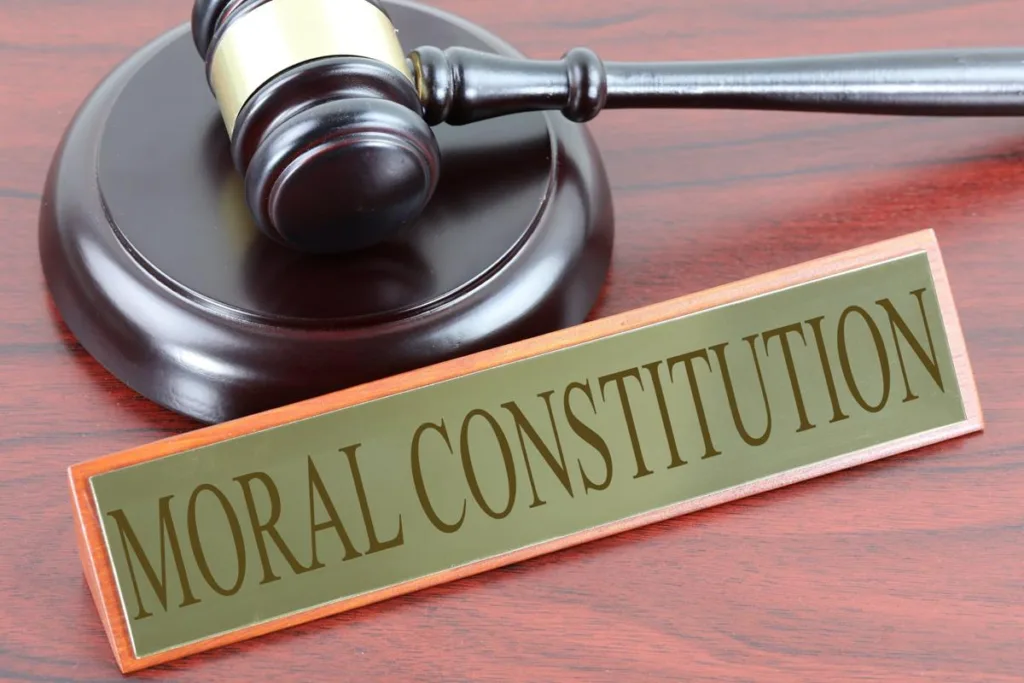The Indian Constitution stands as a beacon of democracy and enshrines the fundamental rights of citizens and the principles that govern the nation. A distinct characteristic of the Indian Constitution is its emphasis on Constitutional Morality – the belief that upholding fundamental rights is not merely a legal obligation but a moral imperative. This article explores the concept of Constitutional Morality, its theoretical foundations, the significance it holds in the Indian Constitution, and how individuals can contribute to upholding it.
Understanding Constitutional Morality:
Constitutional Morality goes beyond mere legal compliance. It involves the ethical commitment to uphold the values enshrined in the Constitution. The Indian Constitution, with its emphasis on equality, justice, liberty, and social welfare, lays the foundation for Constitutional Morality. Each citizen’s responsibility to abide by these values becomes paramount.
Theoretical Foundations:
At the core of Constitutional Morality are freedom and self-control. For a constitutional process to work effectively, individuals must exercise self-control, ensuring their actions align with constitutional principles. India’s Directive Principles, found in Part IV of the Constitution, provide the foundation for social welfare and must harmonize with Fundamental Rights. The Supreme Court’s Minerva Mills case emphasized the importance of balancing these principles in the spirit of constitutional values.
Judicial Interpretations:
Various Supreme Court judgments have shed light on Constitutional Morality. Notably, in the case of Section 377 of the Indian Penal Code, the court highlighted the unconstitutionality of moral policing, asserting that individuals who embrace Constitutional Morality would advocate for equality and dignity for all citizens. Another ruling emphasized that while societal morality might differ, Constitutional Morality protects the rights of all, including the LGBTQ+ community.
Significance According to Indian Constitution:
Constitutional Morality is vital for maintaining a just and equitable society. Upholding this moral code requires citizens to treat everyone with respect and dignity, fight against discrimination, and actively participate in the democratic process. Voting in elections allows citizens to shape the country’s future and contribute to upholding constitutional values.
Scope & Challenges:
The scope of Constitutional Morality remains subject to interpretation by individual judges, leading to potential challenges. Critics argue that excessive judicial activism could undermine parliamentary supremacy and the separation of powers. Striking a balance between Constitutional Morality and societal Morality becomes essential.
Upholding Constitutional Morality:
- Criticize Non-Constitutional Practices: Speak out against any action that violates constitutional ideals, irrespective of tradition or consequences. Be a defender of constitutional principles.
- Educate the People: Foster awareness about the significance of Constitutional Morality in society. Encourage programs in educational institutions to instill these values in the younger generation.
- Apply Constitutional Principles in Judgments: Judges should prioritize constitutional principles over popular Morality while interpreting the law. Define the boundaries of Constitutional Morality to prevent its misinterpretation.
- Commit to Constitutional Ideals: Uphold ideals such as constitutional supremacy, the rule of law, equality, and intolerance for corruption. Let these principles guide decisions in all spheres of life.
The Way Forward:
Preserving Constitutional Morality requires active engagement within the system. Rather than disengaging, individuals should work to bring positive changes. It demands collective efforts from all segments of society to ensure its preservation.
Conclusion:
Constitutional Morality is the backbone of Indian democracy, and upholding it is essential for the nation’s progress and harmony. By embracing the principles enshrined in the Constitution, fostering awareness, and working within the system, citizens can contribute to a society that respects fundamental rights, equality, and justice for all. Through these combined efforts, Constitutional Morality will continue to thrive as a guiding light for generations to come.

